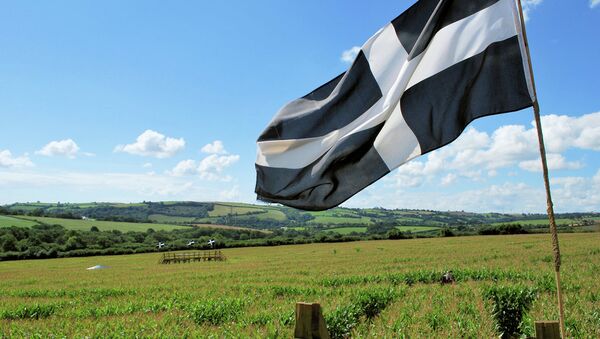The list of endangered languages, compiled by UCL language expert Christopher Moseley, featured Cornish from Cornwall in England's southwest, Manx — spoken on the Isle of Man, alongside Jersey and Guernsey French as British languages under the threat of extinction.
Despite concerns over the relatively low numbers of fluent speakers, it seems the outlook for alternate British languages is fairly optimistic.
In Wales, despite a small decrease in the overall numbers of Welsh speakers to 562,000, locals have been pleased by the 2011 census results, which showed an increase in the number of younger Welsh speakers.
Similarly in Scotland — where there are 58,000 Gaelic speakers — language officials have been encouraged by the increase in the number of younger school-aged children who can speak Gaelic.
However, it is the languages under a far greater threat that have seen more of a revival in recent times.
Jenefer Lowe, Cornish language development manager estimates that there are about 300-350 fluent Cornish speakers, however a recent surge in learning has led to the amount of people who know or can speak limited amounts of the language increasing to approximately 5,000.
In the modern age of globalisation, where English is the most widely-spoken language in the western world, many have raised questions about the practicality of these minor languages and why people would learn them.
However Ms Lowe says it's a sense of local identity that has mainly sparked this increased interest in learning Cornish; and just like Cornwall the region, locals didn't want the language to be conquered.
"A language reflects the people who created it; it reflects the country, it's part of our heritage and culture. Once you've lost it, you've lost it. I think people were beginning to realise in the late 18th century that Cornish was becoming confined to the far west and they were beginning to study it and halt that final decline because they recognise the value of it… It's rooted in Cornish history and it's very much ours. And that's something we want to keep and pass on."
This sense of local identity has also seen a rise in the numbers of those speaking Manx on the autonomous British island of the Isle of Man.
It's thought that in all, there are only 1,800 Manx speakers, with the number of fluent speakers much lower than that. But despite the small numbers, and the death of the last traditional native speaker in 1974, the language seems to be making an impact on the island.
"It's very visible on the Isle of Man," says Manx language development officer Adrian Cain. "It's sort of seen as a way of differentiating the Isle of Man from other jurisdictions because a lot of the time people don't really know where the Isle of Man is and what it stands for. So I think it adds to the sense that the Isle of Man isn't Jersey or Guernsey or the Isle of Wight; it is its own island, its own nation, it has its own cultural traditions."
Discouragement from speaking alternate British languages over the centuries has been noted as a reason why these languages declined in the first place, as the London-centric power base of the United Kingdom asserted English as the lingua franca.
Adrian Cain says poverty and emigration away from the Isle of Man were the main reasons why Manx suffered a decline, but also noted that locals weren't encouraged to speak the language.
"It was certainly looked down upon and there are loads of examples of young children who spoke Manx 150 years ago, where it was made fairly obvious to them that they shouldn't and wouldn't be allowed to speak the language in schools."
"Certainly Manx didn't fit into a Victorian world view, which was really Anglo-centric," he said.
A major factor seen to be behind Manx's revival is the establishment of Bunscoill Ghaelgagh, a primary school on the island that teaches the whole school curriculum in Manx.
"My four-year-old son goes to that school and I only speak Manx to him. So there are lots of young people learning through the language; there are over one thousand children who learn Manx in schools and there's quite a lively adult language sector now," Adrian Cain said.
Classes and online web resources have allowed many locals to engage with Cornish and Manx, while the establishment of ‘linguistic tourism' — where people learn and study endangered languages — has shown that there is a wider appeal for these widely-forgotten languages.
The increasing use of some regional languages throughout Europe and the UK has mirrored the renewed sense of cultural identity felt by many ethnic minority groups in the current age of globalisation.
Despite concerns over the limited number of people speaking these lesser-known British languages, particularly in a world where English is becoming more dominant, there is renewed hope and pride that they will survive and thrive into the future.


